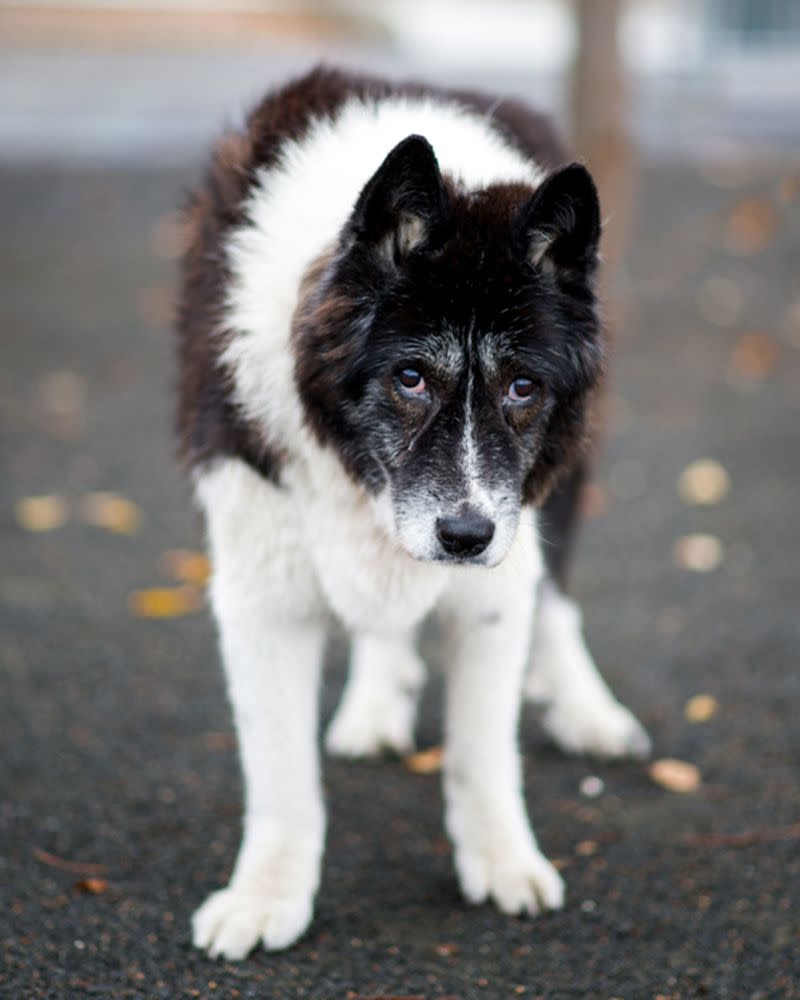Senior Dogs Can Suffer from Dementia Just Like People Do; Find Out If Your Older Pup Needs Help
Growing older can be tough – and that goes for all species. When it comes to age-related illnesses, dementia and Alzheimer’s disease are some of the most notorious and least understood human afflictions. But did you know that man’s best friend can suffer from very similar ailments?
If you’ve noticed your senior dog has been increasingly irritable and disoriented, having sleep troubles (including sleeping all day) or having frequent accidents inside the house, he or she may be suffering from a disease that manifests very similarly to dementia and Alzheimer’s disease in people. All of these signs and more can add up to a diagnosis of Canine Cognitive Dysfunction, or CCD, an age-related neurobehavioral syndrome that leads to a decline in cognitive function, and may affect anywhere from 14 to 22 percent of senior dogs.
Although CCD may be inevitable in some dogs and there’s no known cure, there are actions pet parents can take to stave off the heartbreaking and frustrating process of deterioration. PEOPLE spoke to a handful of experts on the issue so you can learn to recognize the symptoms in advance and hold your best friend’s paw as he navigates his golden years with strength and dignity.
Dr. Melissa Bain, Professor of Clinical Animal Behavior at the University of California-Davis School of Veterinary Medicine, tells PEOPLE that CCD is caused by an accumulation of plaque around neurons in the brain, causing degeneration. She’s done research on the subject and believes one of her now-deceased dogs may have suffered from CCD at the end of his life. Bain says pet owners may begin to see changes in their dog around the age of 9 years, and that CCD can affect any breed.

“First, understand that the changes are not the pet’s ‘fault’ when they start to house soil,” Bain tells PEOPLE. “They can’t help it. Medically, there are diets and supplements available that slow down the progression of the disease. These have ingredients such as antioxidants that can help with brain health. There is one medication licensed to treat CCD, Anipryl, that has some success in decreasing some of the signs that dogs demonstrate.”
(Selegiline, or Anipryl® Pfizer Animal Health, is a drug licensed for the treatment of CCD in dogs in North America.)
Bain says that the signs can be remembered through the acronym D.I.S.H.A.: Disorientation; Interaction changes (decreased)/Irritability; Sleep changes (up all night or sleeping all day); House soiling; Activity changes/Anxiety/Anorexia. She suggests managing behavior issues by making sure the house is safe (installing baby gates, etc.), treating senior dogs like they are puppies (“Take them outside frequently to eliminate and go out there with them,” she says) and trying to keep your pet active during the day so she’s more likely to sleep through the night. Additional signs of decline may include the ability to ‘learn new tricks,’ memory and decreased olfactory sensation.
In terms of a diagnosis, veterinarians first need to rule out other diseases. Many of the symptoms listed above can indicate other underlying medical conditions, so CCD is identified “by exclusion,” according to Bain. That said, studies on prescription diets and certain supplements do seem to show that some dogs may improve a bit with special care, and the progression of CCD can slow down in comparison to dogs who receive no treatment.

Durga Chapagain, a Ph.D. candidate at the University of Veterinary Medicine in Vienna, Austria, who has worked at the Clever Dog Lab and Messerli research institute with a focus on dog cognition, reiterates what Dr. Bain says. She, too, understands that it is a challenge to live with dogs who are affected by CCD, especially when it goes untreated.
“I am very much interested to learn how CCD affects the dog-human relationship and whether or how the welfare of dogs is compromised,” Chapagain tells PEOPLE. To that end, she is working on creating a test to differentiate normally aging dogs from dogs affected by CCD. “Rather than basing the diagnosis solely on a questionnaire which the owners subjectively fill to categorize CCD dogs, it will be more objective if the diagnosis can be based on … the performance of dogs in different cognitive and social tasks.”
Additionally, Chapagain is hoping to determine the neuro-pathological similarities between CCD and human Alzheimer’s disease. She says the clinical signs and the variation in cognitive abilities displayed by aging dogs often mirror the signs for dementia and Alzheimer’s disease in humans.
“If multiple behavior problems develop and these changes progress to the point where the dog is no longer a ‘functional’ pet, the condition may be consistent with human [Alzheimer’s disease]. In severe cases, they tend to stop recognizing familiar people,” says Chapagain. “Owners are willing to accept that their dog has a certain medical condition but when it comes to impaired behavioral conditions, it [takes] a lot of dedication and willingness to live with a CCD affected dog. Sometimes you are left to question whether you are compromising the welfare of [the dog] by letting them live longer.”
Dr. Patrick Mahaney, Certified Veterinary Acupuncturist and Certified Veterinary Journalist with California Pet Acupuncture and Wellness (CPAW), Inc., often treats CCD from a holistic and Western (conventional) perspective. Mahaney tells PEOPLE that he recommends supplements having an antioxidant and/or anti-inflammatory effect, such as Silybin, S-Adenosyl Methionine (SAMe), omega fatty acids (primarily omega 3 and omega 6 faHy acids) and Vitamin E. He also recommends herbs that have an antioxidant and anti-inflammatory effect, like turmeric, ginger and others.
“Foods that are rich in nutrients appearing similar to how they do in nature should be fed to CCD dogs,” Mahaney tells PEOPLE. “Cooked, human-grade, whole-food diets are those I primarily recommend for clients to purchase or make home-prepared versions. I recommend cooked-meat diets, as many senior patients could have comorbidities (cancer or other conditions requiring immunosuppressive treatment, immune, kidney, liver and other diseases) that could make feeding a raw-meat diet less ideal. Human-grade diets generally have higher-quality ingredients than feed-grade diets and can have lower levels of mold-produced and other toxins.”

Mahaney believes dog acupuncture and massage can also help with CCD, as there can be problems “in the energy that flows around the body along the meridians. When energetic obstructions occur there’s a trickle-down effect that impedes blood flow and thereby nutrient and oxygen delivery and the removal of metabolic wastes and by-products of day-to-day metabolism and disease processes … Generally, when the body’s fluids are moving well there is improved organ-system function and fewer clinical signs of illness.”
Finally, Dr. Mahaney says that dogs with CCD have altered patterns of wakefulness, sleeping, eating, drinking, urinating and defecating. “As a result, they also have altered time frames when it comes to attending to such otherwise biologically ingrained habits,” he explains. “If owners create structure and habits around their CCD-having pets as pertains to exercise, play, meal, elimination and other habits they can counteract clinical signs of the disease.”
Chapagain would likely agree. She believes in the saying “prevention is better than cure,” and says dog owners can prevent cognitive decline or delay the occurrence of CCD by following certain measures, such as being vigilant about the behavioral health of their dog, applying the right diet according to age and health, and ensuring that their dog is not overweight. “[Pet parents] should continue to provide their dog with physical exercise, play sessions, new toys and even new training that can all help enrich the lives and brains of older dogs,” she adds.
Dr. Bain concurs, telling PEOPLE, “The big takeaways are that owners should seek help from their veterinarian to rule out other treatable problems, keep the dog comfortable, and enjoy the journey.”


